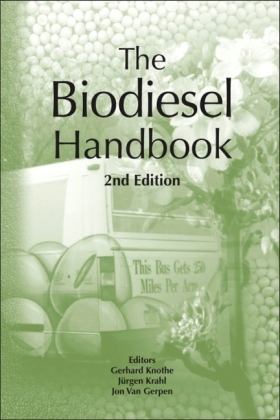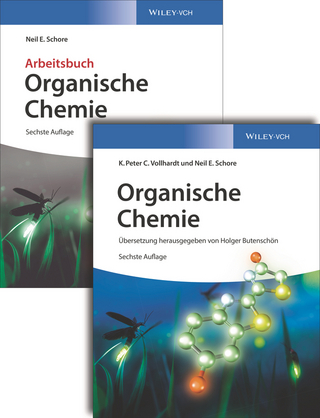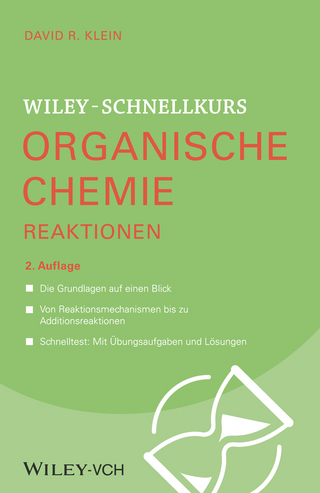
The Biodiesel Handbook
AOCS (Verlag)
978-1-893997-62-2 (ISBN)
- Titel ist leider vergriffen;
keine Neuauflage - Artikel merken
The handbook delivers solutions to issues associated with biodiesel feedstocks, production issues, quality control, viscosity, stability, and applications, as well as emissions and other environmental impacts. In addition to technical material, it updates readers on the status of the biodiesel industry worldwide.
Gerhard Knothe obtained M.S. and Ph.D. degrees in chemistry at the University of Bremen, Germany. After a brief postdoctoral appointment, he has been affiliated with the National Center for Agricultural Utilization Research of the U.S. Department of Agriculture in Peoria, IL, since 1989. Over the years, his research has focused on vegetable oil-derived diesel fuels (biodiesel) and some oleochemistry, which has included the use of NMR and MS. He has more than 80 publications to his credit and is scheduled to receive the Industrial Uses of Soybeans Award sponsored by the USB/AOCS. He edited (together with two co-editors) The Biodiesel Handbook. He lectures in courses on biodiesel. Jurgen Krahl is a professor at Coburg University in Coburg, Germany. He teaches classes in ecological chemistry and inorganic chemistry. Jurgen is the CEO of the Technology Transfer Center Automotive Coburg University (TAC) and a member of the Fuels Joint Research Group (www.fuels-jrg.de). His research areas include biofuels, fuel design, and exhaust gas analysis. Dr. Jon Van Gerpen is a Professor and Department Head of Biological and Agricultural Engineering at the University of Idaho. He has held that position since July 2004. Before that, he was a professor of Mechanical Engineering at Iowa State University for 20 years. He received his B.S. (1978) and M.S. (1980) degrees in Mechanical Engineering from Iowa State and his Ph.D. (1984) from the University of Wisconsin-Madison. During a 14 month sabbatical, he worked on the design team at John Deere that developed a 12.5 liter engine. Dr. Van Gerpen has been researching the production and utilization of biodiesel for the past 17 years and his current projects include the design and construction of a biodiesel pilot plant and the development of a nation-wide biodiesel education program. He has published numerous technical papers on biodiesel production from low-cost and novel feedstock. Dr. Van Gerpen has been investigating the production and utilization of biodiesel since 1992. His work includes projects to explore the effect of biodiesel on engines, property characterization, production quality control and production from novel and low-cost feedstocks. He has been engaged in educational efforts with biodiesel including acting as the project director for a USDA-funded National Biodiesel Education Program that is in its second 5-year cycle of funding. In addition to biodiesel, He is interested in other biofuels such as cellulosic ethanol, hydrocarbons from lipids, and gasification.
Introduction
History of Vegetable Oil-Based Diesel Fuels
The Basics of Diesel Engines and Diesel Fuels
Biodiesel Production
Basics of the Transesterification Reaction
Alternate Feedstocks and Technologies for Biodiesel Production
Catalysis in Biodiesel Processing
Ion Exchange Resins in Biodiesel Processing
Analytical Methods
Analytical Methods for Biodiesel
A Sensor for Discrimination of Fossil Diesel Fuel, Biodiesel, and Their Blends
Fuel Properties
Cetane Numbers-Heat of Combustion-Why Vegetable Oils and Their Derivatives Are Suitable as a Diesel Fuel
Viscosity of Biodiesel
Cold Weather Properties and Performance of Biodiesel
Oxidative Stability of Biodiesel
Biodiesel Lubricity and Effect of Biodiesel on Lubricants
Biodiesel Fuels: Biodegradability, Biological and Chemical Oxygen Demand, and Toxicity
Soybean Oil Composition for Biodiesel
Exhaust Emissions
Impacts of Biodiesel Fuel on Pollutant Emissions from Diesel Engines
Ultrafine Particles from a Heavy Duty Diesel Engine Running on Rapeseed Oil Methyl Ester
Current Status of the Biodiesel Industry
Biodiesel in the United States
Biodiesel in Germany and the European Union
Biodiesel in South America
Biodiesel in Asia
Biodiesel in Japan
Environmental Implications of Biodiesel (Life-Cycle Assessment)
Potential Production of Biodiesel in the United States
Other Uses of Biodiesel
Other Alternative Diesel Fuels from Vegetable Oils ande Animal Fats
Glycerol Technology Options for Biodiesel Industry
Appendices: Technical Tables; Biodiesel Standards; Unit Conversions; Internet Resources
| Erscheint lt. Verlag | 23.10.2015 |
|---|---|
| Verlagsort | IL |
| Sprache | englisch |
| Maße | 152 x 229 mm |
| Gewicht | 450 g |
| Themenwelt | Naturwissenschaften ► Chemie ► Organische Chemie |
| Naturwissenschaften ► Chemie ► Technische Chemie | |
| Technik ► Elektrotechnik / Energietechnik | |
| Technik ► Umwelttechnik / Biotechnologie | |
| ISBN-10 | 1-893997-62-6 / 1893997626 |
| ISBN-13 | 978-1-893997-62-2 / 9781893997622 |
| Zustand | Neuware |
| Haben Sie eine Frage zum Produkt? |
aus dem Bereich


